19 Incredible Research Breakthroughs by Binghamton Faculty
As Binghamton University recently achieved the “very high research” classification by the Carnegie Classification of Institutions of Higher Education, it is a great time to look at some of the significant breakthroughs by Binghamton researchers that have helped the University get to this point.
Neanderthals had the capacity to perceive and produce human speech
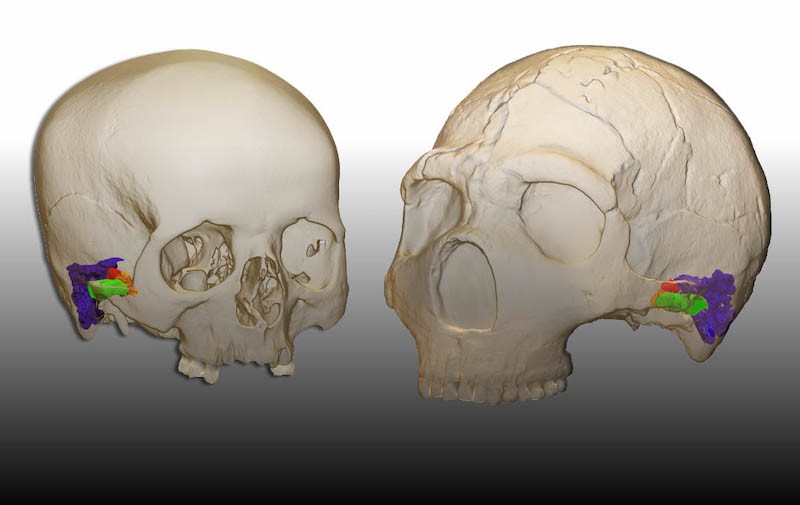
Neanderthals — the closest ancestor to modern humans — possessed the ability to perceive and produce human speech, according to a study published by an international multidisciplinary team of researchers including Binghamton University Associate Professor of Anthropology Rolf Quam and graduate student Alex Velez. The study relied on high- resolution CT scans to create virtual 3D models of the ear structures in Homo sapiens and Neanderthals as well as earlier fossils from the site of Atapuerca that represent ancestors of the Neanderthals. Data collected on the 3D models were entered into a software-based model, developed in the field of auditory bioengineering, to estimate the hearing abilities up to 5 kHz, which encompasses most of the frequency range of modern human speech sounds. Compared with the Atapuerca fossils, the Neanderthals showed slightly better hearing between 4-5 kHz, resembling modern humans more closely.
Hate groups in social media on the rise

Assistant Professor of Computer Science Jeremy Blackburn studies hate groups and extremist communities on social media. He and his team have been tracking the evolution and rise of Sinophobic, or anti-Chinese, terms on networks such as 4chan and Twitter. For example, the term “Wuhan flu” didn’t exist in the lexicon until the onset of COVID-19.
Researchers develop DNA sunscreen that gets better the longer you wear it

A team of researchers led by Associate Professor of Biomedical Engineering Guy German have developed a coating made out of DNA that gets better at protecting skin from ultraviolet light the more you expose it to the sun. It also keeps your skin hydrated. The team developed thin and optically transparent crystalline DNA films and irradiated them with UV light. They found that the more they exposed the film to UV light, the better the film got at absorbing it. If you translate that, it means to me that if you use this as a topical cream or sunscreen, the longer that you stay out on the beach, the better it gets at being a sunscreen.
Drones can be used to locate abandoned gas and oil wells

Geophysics and Remote Sensing Laboratory Director Timothy de Smet, Assistant Professor of Geological Sciences and Environmental Studies Alex Nikulin, and then-graduate student Natalia Romanzo found that drones create a safe way to locate unplugged oil and gas wells, which pose an environmental threat. The drones use a magnetometer that can detect magnetic anomalies within the wells’ metal casings that will lead to locating them.
There are positive and negative impacts of working with "stars"

Scott Bentley, assistant professor of strategy, and Rebecca Kehoe, from Cornell University’s School of Industrial and Labor Relations, analyzed data from performance hedge funds and funds managers, along with news articles and rankings from financial media outlets, to determine the risks and rewards of working with star employees. The researchers found that stars take both a majority of the credit and blame within the industry. Although collaborators did not always get penalized for a failed collaboration, they were not always rewarded for their successes either.
Easter Islanders used ropes, ramps to put giant hats on famous statues
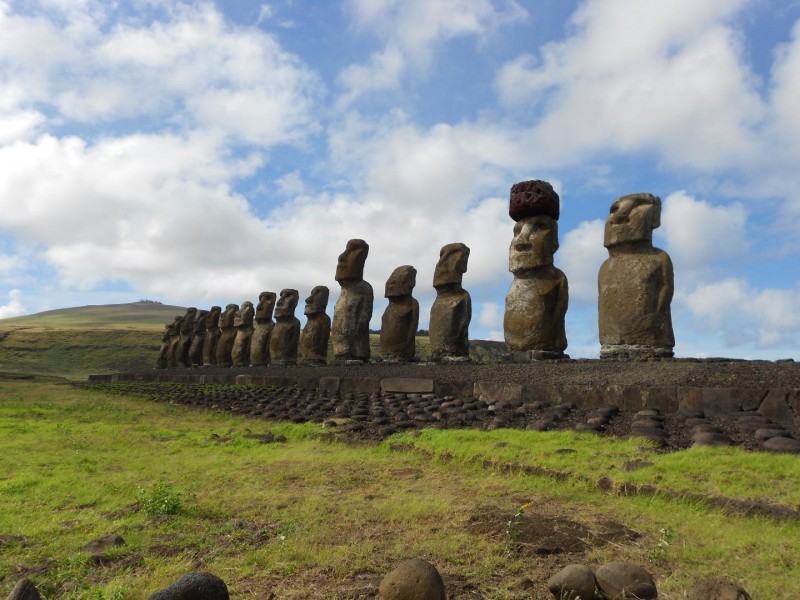
Professor of Anthropology Carl Lipo and his team discovered how the ancient people of Rapa Nui (often called Easter Island) were able to lift massive stone hats to place them on top of statues. Using photos of the hats, the team developed three-dimensional models to identify a parbuckling technique, wherein people used line to wrap around the hat (pukao) cylinder and pull the rope from the top of the platform.
"Scuba-diving" lizard can stay underwater for 16 minutes

Lindsey Swierk, assistant research professor of biological sciences, documented that the water anole (Anolis aquaticus) is able to breathe under water for long periods of time to escape from predators. The unique behavior was documented for the first time by Swierk in a video that shows the anole breathing out and re-inhaling an air pocket under water. Swierk first noticed this species when she was walking along mountain streams in Costa Rica and observed the lizards dive under water and stay submerged for a long period of time.
Woodstock was really a free-wheeling festival

Binghamton University’s Public Archaeology Facility (PAF) has worked closely with the Museum at Bethel Woods and Bethel Woods Center for the Arts to dig at the site of the original Woodstock Music and Art Fair. In 2019, PAF worked to locate and identify cultural features to help the museum construct a trail system based on plans from the Woodstock archives. By analyzing the rocks and vegetation surrounding the area, the researchers located 24 potential vendor booths concentrated on one side of the “Bindy Bazaar” area and not distributed as on the 1969 plans. This is evidence that the festival took on a life of its own that organizers could not control.
Gender plays a role in sustainability policymaking

Kristina Lambright, associate professor of public administration, and George Homsy, associate professor of public administration and director of the environmental studies program, found that communities with female leadership are more likely to adopt community energy policies and redistributive programs, such as incentivizing affordable housing and funding child care. They also found no correlation between the gender of a leader and the adoption of government energy conservation practices.
Early eyewitness interviews are crucial
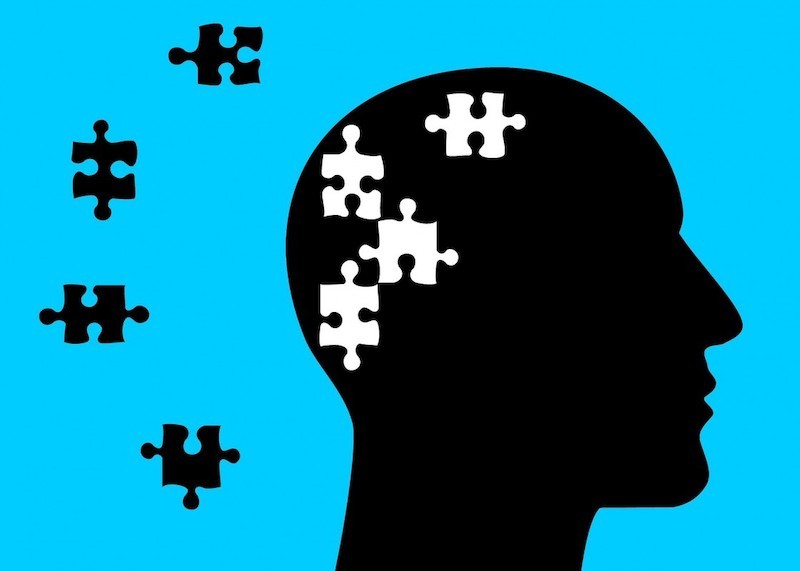
Undergraduate working with Ralph Miller, professor of psychology, used data from an experiment conducted with Binghamton University students to determine how time affects memory. They found that interviewing eye-witnesses as early as possible could minimize the forgetfulness of the witness, in turn making eye-witness testimony more accurate.
Artificial intelligence can be used to stop the spread of COVID-19

Arti Remish and Anand Seetharam, both assistant professors in the Department of Computer Science at Binghamton University’s Thomas J. Watson College of Engineering and Applied Science, are using machine learning to track exposure to the coronavirus by using coronavirus data collected by John Hopkins University and anonymous cell phone data that tracked Rio de Janeiro residents to form an algorithm. This new algorithm will follow the trends and patterns of the 50 countries with the highest COVID-19 infection rates and then form predictions.
Misuse of ADHD medication can lead to low GPA

Lina Begdache, assistant professor of health and wellness studies and founder of the Binghamton Student Managed Adderall Research Team (B-SMART), along with the student members of the team, are trying to determine why college students often misuse Adderall and what the side effects of this drug may be. The team found that the misuse of ADHD medication such as Adderall can lead to a low GPA, and both mental and physical side effects.
The importance in studying Shakespeare in terms of race

David Sterling Brown, assistant professor of English, a Shakespeare and premodern critical race studies scholar and executive board member of the RaceB4Race conference series, examines the fact that race is not a prominent element in studying Shakespeare’s Macbeth, because people often compare blackness with race. Brown notes the importance of understanding the true meaning and construction of whiteness and having these often uncomfortable conversations in a classroom setting.
Showing discipline with kindness, compassion to employees result in better job performance

A research team including Chou-Yu Tsai, Shelley Dionne and Francis Yammarino from the School of Management found that showing compassion to subordinates almost always pays off, especially when combined with the enforcement of clear goals. The team surveyed nearly 1,000 members of the Taiwanese military and almost 200 adults working full-time in the United States, and looked at the subordinate performance that resulted from three different leadership styles. The researchers found that authoritarianism-dominant leadership almost always had negative results on job performance, while benevolence-dominant leadership almost always had a positive impact on job performance. In other words, showing no compassion to your employees doesn’t bode well for their job performance, while showing compassion motivated them to be better workers.
Abused children are more likely to form unhealthy relationships when they get older

Dalhee Yoon, an assistant professor of social work in the College of Community and Public Affairs, has focused much of her career on the effects of child abuse and neglect. Her research analyzes the correlation between different forms of abuse and the choices the neglected child makes as a teenager. Yoon found that abused children are more likely to form unhealthy relationships when they get older and are more likely to engage in harmful behaviors.
Historian Anne Bailey explores largest slave auction in U.S. history
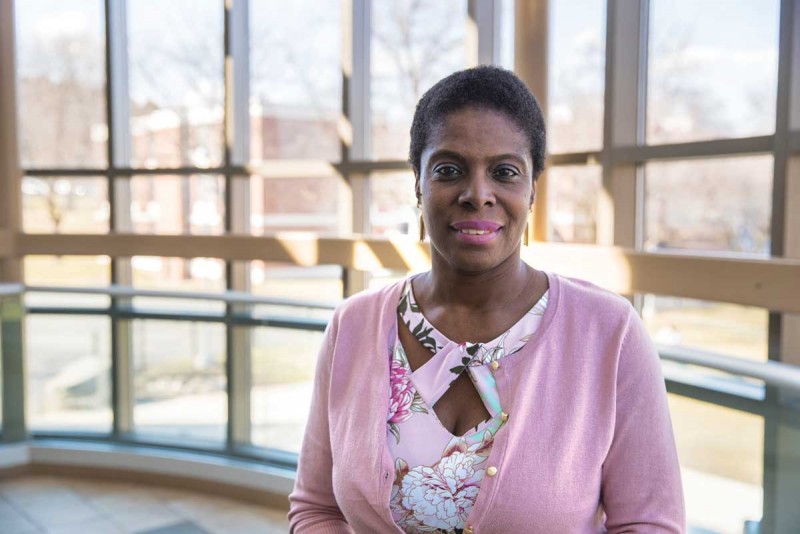
Professor of History Anne Bailey detailed the largest-recorded slave auction in U.S. history in her new book The Weeping Time. She interviewed four descendants from the Pierce Butler plantation and examined how this family history affects the descendants’ lives’ today. Bailey also questions the progress of the United States and how far the nation has truly come.
Professor of Philosophy examines the correlation between ethics and disease

Nicole Hassoun, philosophy professor, ethicist and co-director for the Institute of Justice and Well-Being, determined that COVID-19 is diverting funds from already under-researched and under-developed diseases such as AIDS, malaria and various tropical diseases. She also noted that the coronavirus is exacerbating global health inequality. Hassoun argues for the human right to health and essential medicines, as poorer nations are lacking the proper necessities to take care of the virus such as ventilators and critical-care facilities.
Preservation of endangered Ladino language is crucial
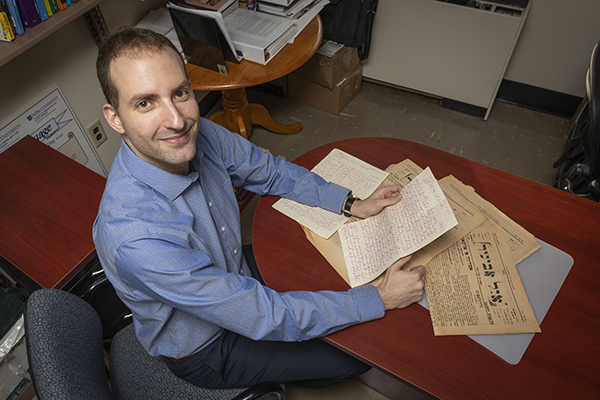
Bryan Kirschen, assistant professor of Spanish and linguistics, is working to preserve, and spread awareness of, the Ladino language, tracing back to the 15th century. Ladino is a mixture of Spanish, Portuguese, Hebrew and Turkish, among others. Kirschen co-organizes an annual event called the International Day of Ladino in New York City, which brings heritage speakers together. Kirschen believes that preservation will lead to the continuation of passing down sayings, songs, folklore and traditions to the generations that follow.
Sound and listening is crucial in understanding social justice
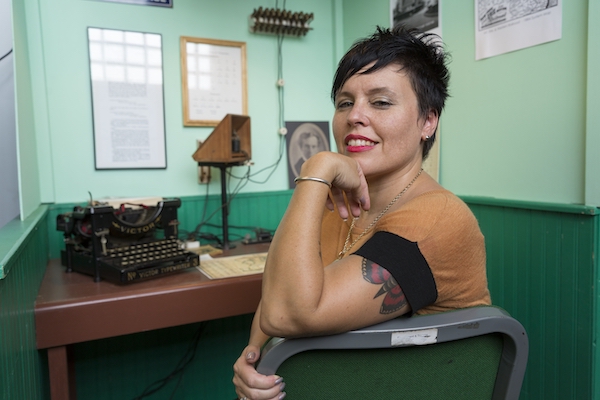
Jennifer Stoever, associate professor of English, takes an unconventional approach in her research of social justice: sound and listening. She finds listening is crucial in the way racism is spread and percieved. Understanding listening to be a subjective experience rather than a passive act can bring awareness to how racial discrimination happens and why it has continued for so long. Stoever views this unconventional research as the first step in recognizing how racial sterotypes spread, in order to dismantle them.
Sunshyne Lynch is an English major with a minor in women, gender and sexuality studies. She also works as an intern with the Office of Media and Public Relations.
Have questions, comments or concerns about the blog? Email us at social@binghamton.edu.
